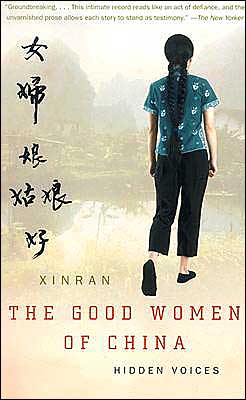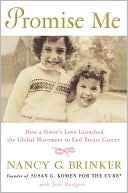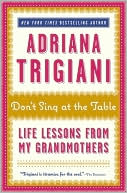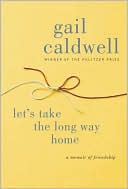The Good Women of China: Hidden Voices
When Deng Xiaoping’s efforts to “open up” China took root in the late 1980s, Xinran recognized an invaluable opportunity. As an employee for the state radio system, she had long wanted to help improve the lives of Chinese women. But when she was given clearance to host a radio call-in show, she barely anticipated the enthusiasm it would quickly generate. Operating within the constraints imposed by government censors, “Words on the Night Breeze” sparked a tremendous outpouring, and the hours...
Search in google:
An unprecedented, intimate account of the lives of modern Chinese women, told by the women themselves — true stories of the political and personal upheavals they have endured in their chaotic and repressive societyFor eight groundbreaking years, Xinran hosted a radio program in China during which she invited women to call in and talk about themselves. Broadcast every evening, Words on the Night Breeze became famous throughout the country for its unflinching portrayal of what it meant to be a woman in modern China. Centuries of obedience to their fathers, husbands and sons, followed by years of fear under Communism, had made women terrified of talking openly about their feelings. Xinran won their trust and, through her compassion and ability to listen, became the first woman to hear their true stories.This unforgettable book is the story of how Xinran negotiated the minefield of restrictions imposed on Chinese journalists to reach out to women across the country. Through the vivid intimacy of her writing, these women confide in the reader, sharing their deepest secrets. Whether they are the privileged wives of party leaders or peasants in a forgotten corner of the countryside, they tell of almost inconceivable suffering: forced marriages, sexual abuse, separation of parents from their children, extreme poverty. But they also talk about love — about how, despite cruelty, despite politics, the urge to nurture and cherish remains. Their stories changed Xinran’s understanding of China forever. Her book will reveal the lives of Chinese women to the West as never before. The New Yorker In 1989, Xinran, a Beijing journalist, began broadcasting a nightly program on state radio that was devoted entirely to personal affairs -- a radical concept in Communist China. In response, she received thousands of letters from women, many with questions about sexuality; one woman wondered "why her heart beat faster when she accidentally bumped into a man on the bus." Eventually, Xinran persuaded her superiors to let her share some of these letters on the air, and in this groundbreaking book, written after she moved to London, in 1997, she has also included stories that didn't make it past government censors. A teen-ager commits suicide after learning that a neighbor has seen her boyfriend kiss her forehead; a university student speaks casually of becoming a "personal secretary," or mistress, to a rich man; a Kuomintang general's daughter goes mad after witnessing the torture of the family that sheltered her. This intimate record reads like an act of defiance, and the unvarnished prose allows each story to stand as testimony.
1: My Journey Towards the Stories of Chinese Women\ Early one spring morning in 1989, I rode my Flying Pigeon bicycle through the streets of Nanjing dreaming about my son PanPan. The green shoots on the trees, the clouds of frosty breath enveloping the other cyclists, the women's silk scarves billowing in the spring wind, everything merged with thoughts of my son. I was bringing him up on my own, without the help of a man, and it was not easy caring for him as a working mother. Whatever journey I went on, though, long or short, even the quick ride to work, he accompanied me in spirit and gave me courage.\ 'Hey, big-shot presenter, watch where you're going,' shouted a colleague as I wobbled into the compound of the radio and TV station where I worked.\ Two armed policemen stood at the gates. I showed them my pass. Once inside, I would have to face further armed guards at the entrances to the offices and the studios. Security at the broadcasting station was extremely tight and workers were wary of the guards. A story circulated of a new soldier who fell asleep on night duty and was so keyed up that he killed the comrade who woke him.\ My office was on the sixteenth floor of the forbidding, twenty-one-storey modern building. I preferred to climb the stairs rather than risk the unreliable lift, which broke down frequently. When I arrived at my desk, I realised I had left my bicycle key in the lock. Taking pity on me, a colleague offered to go and telephone down to the gatekeeper. This was not so easy since no junior employee at that time had a telephone and my colleague would have to go to the section head's office to make the call. In the end, someone brought me up my key with my mail. Amidst the large pile of letters, one immediately caught my attention: the envelope had been made from the cover of a book and there was a chicken feather glued to it. According to Chinese tradition, a chicken feather is an urgent distress signal.\ The letter was from a young boy, and had been sent from a village about 150 miles from Nanjing.\ Most respected Xinran,\ I listen to every one of your programmes. In fact, everyone in our village likes listening to them. But I am not writing to tell you how good your programme is; I am writing to tell you a secret.\ It's not really a secret, because everyone in the village knows. There is an old, crippled man of sixty here who recently bought a young wife. The girl looks very young - I think she must have been kidnapped. This happens a lot around here, but many of the girls escape later. The old man is afraid his wife will run off, so he has tied a thick iron chain around her. Her waist has been rubbed raw by the heavy chain - the blood has seeped through her clothes. I think it will kill her. Please save her.\ Whatever you do, don't mention this on the radio. If the villagers find out, they'll drive my family away.\ May your programme get better and better.\ Your loyal listener,\ Zhang Xiaoshuan\ This was the most distressing letter I had received since I had started presenting my evening radio programme, Words on the Night Breeze, four months earlier. During the programme I discussed various aspects of daily life and used my own experiences to win the listeners' trust and suggest ways of approaching life's difficulties. 'My name is Xinran,' I had said at the beginning of the first broadcast. '"Xinran" means "with pleasure". "Xin xin ran zhang kai le yan," wrote Zhu Ziqing in a poem about spring: "With pleasure, Nature opened its eyes to new things."' The programme was a 'new thing' for everyone, myself included. I had only just become a presenter and I was trying to do something that hadn't been done on the radio before.\ Since 1949, the media had been the mouthpiece of the Party. State radio, state newspapers and, later, state television provided the only information Chinese people had access to, and they spoke with one identical voice. Communication with anyone abroad seemed as remote as a fairy tale. When Deng Xiaoping started the slow process of 'opening up' China in 1983, it was possible for journalists, if they were courageous, to try and make subtle changes to how they presented the news. It was also possible, although perhaps even more dangerous, to discuss personal issues in the media. In Words on the Night Breeze I was trying to open a little window, a tiny hole, so that people could allow their spirits to cry out and breathe after the gunpowder-laden atmosphere of the previous forty years. The Chinese author and philosopher Lu Xun once said, 'The first person who tasted a crab must also have tried a spider, but realised that it was not good to eat.' As I awaited the reaction of my listeners to the programme, I wondered whether they would think it was a crab or a spider. The number of enthusiastic letters that piled up on my desk convinced me that it was the former.\ The letter I received from the young boy Zhang Xiaoshuan was the first that had appealed for my practical help and it threw me into confusion. I reported it to my section head and asked what I should do. He suggested indifferently that I contact the local Public Security Bureau. I put a call through and poured out Zhang Xiaoshuan's story.\ The police officer on the other end of the line told me to calm down. 'This sort of thing happens a lot. If everyone reacted like you, we'd be worked to death. Anyway, it's a hopeless case. We have piles of reports here, and our human and financial resources are limited. I would be very wary of getting mixed up in it if I were you. Villagers like that aren't afraid of anyone or anything; even if we turned up there, they'd torch our cars and beat up our officers. They will go to incredible lengths to make sure that their family lines are perpetuated so as not to sin against their ancestors by failing to produce an heir.'\ 'So,' I said, 'Are you telling me you are not going to take responsibility for this girl?'\ 'I didn't say I wouldn't, but . . .'\ 'But what?'\ 'But there's no need to hurry, we can take it step by step.'\ 'You can't leave someone to die step by step!'\ The policeman chuckled. 'No wonder they say that policemen fight fire and journalists start fire. What was your name again?'\ 'Xin . . . ran,' I said through gritted teeth.\ 'Yes, yes, Xinran, good name. All right, Xinran, come over. I'll help you.' He sounded as if he was doing me a favour rather than performing his duty.\ I went straight to his office. He was a typical Chinese police officer: robust and alert, with a shifty expression.\ 'In the countryside,' he said, 'the heavens are high and the emperor is far away.' In his opinion the law had no power there. The peasants feared only the local authorities who controlled their supplies of pesticide, fertiliser, seeds and farming tools.\ The policeman was right. In the end, it was the head of the village agricultural supplies depot who managed to save the girl. He threatened to cut off the villagers' supply of fertiliser if they did not release her. Three policemen took me to the village in a police car. When we arrived, the village head had to clear the way for us through the villagers, who were shaking their fists and cursing us. The girl was only twelve years old. We took her away from the old man, who wept and swore bitterly. I dared not ask after the schoolboy who had written to me. I wanted to thank him, but the police officer told me that if the villagers found out what he had done, they might murder him and his family.\ Witnessing the power of the peasants first-hand, I began to understand how Mao had defeated Chiang Kai-shek and his British and American weapons with their help.\ The girl was sent back to her family in Xining - a twenty-two-hour train journey from Nanjing - accompanied by a police officer and someone from the radio station. It turned out that her parents had run up a debt of nearly 10,000 yuan searching for her.\ *\ • *\ • *\ I received no praise for the rescue of this girl, only criticism for 'moving the troops about and stirring up the people' and wasting the radio station's time and money. I was shaken by these complaints. A young girl had been in danger and yet going to her rescue was seen as 'exhausting the people and draining the treasury'. Just what was a woman's life worth in China?\ This question began to haunt me. Most of the people who wrote to me at the radio station were women. Their letters were often anonymous, or written under an assumed name. Much of what they said came as a profound shock to me. I had believed that I understood Chinese women. Reading their letters, I realised how wrong my assumption had been. My fellow women were living lives and struggling with problems I had not dreamed of.\ Many of the questions they asked me related to their sexuality. One woman wanted to know why her heart beat faster when she accidentally bumped into a man on the bus. Another asked why she broke out into a sweat when a man touched her hand. For so long, all discussion of sexual matters had been forbidden and any physical contact between a man and woman who were not married had led to public condemnation — being 'struggled against' — or even imprisonment. Even between a husband and wife 'pillow talk' could be taken as evidence of delinquent behaviour, and, in family quarrels, people would often threaten to denounce their partners to the police for having indulged in it. As a result, two generations of Chinese had grown up with their natural instincts in confusion. I myself was once so ignorant that, even at the age of twenty-two, I refused to hold hands with a male teacher at a bonfire party for fear of getting pregnant. My understanding of conception was gleaned from a line in a book: 'They held hands under the light of the moon . . . In spring they had a bouncing baby son.' I found myself wanting to know much more about the intimate lives of Chinese women and decided to start researching their different cultural backgrounds.\ Old Chen was the first person I told about my project. He had been a journalist for a very long time and was highly respected. It was said that even Nanjing's mayor came to him for advice. I often consulted him about my work, out of deference to his seniority, but also to draw on his considerable experience. This time, however, his reaction surprised me. He shook his head, which was so bald you couldn't tell where his scalp ended and his face began, and said, 'Naive!'\ I was taken aback. Chinese people consider baldness a sign of wisdom. Was I wrong? Why was it so naive to want to understand Chinese women?\ I told a friend who worked at the university about Old Chen's warning.\ 'Xinran,' he said, 'have you ever been inside a sponge cake factory?'\ 'No,' I replied, confused.\ 'Well, I have. So I never eat sponge cake.' He suggested that I try visiting a bakery to see what he meant.\ I am impatient by nature, so at five o'clock the next morning I made my way to a bakery that was small but had a good reputation. I hadn't announced my visit, but I didn't expect to encounter any difficulty. Journalists in China are called 'kings without crowns'. They have the right of free entry to almost any organisation in the country.\ The manager at the bakery did not know why I had come but he was impressed by my devotion to my job: he said that he had never seen a journalist up so early to gather material. It was not yet fully light; under the dim light of the factory lamps, seven or eight female workers were breaking eggs into a large vat. They were yawning and clearing their throats with a dreadful hawking noise. The intermittent sound of spitting made me feel uneasy. One woman had egg yolk all over her face, most probably from wiping her nose rather than some obscure beauty treatment. I watched two male workers add flavouring and colour to a thin flour paste that had been prepared the day before. The mixture had the eggs added to it and was then poured into tins on a conveyor belt. When the tins emerged from the oven, a dozen or so female workers packed the cakes into boxes. They had crumbs at the corners of their mouths.\ As I left the factory, I remembered something a fellow journalist had once told me: the dirtiest things in the world are not toilets or sewers, but food factories and restaurant kitchens. I resolved never to eat sponge cake again, but could not work out how what I had seen related to the question of understanding women.\ I rang my friend, who seemed disappointed with my lack of perception.\ 'You have seen what those beautiful, soft cakes went through to become what they are. If you had only looked at them in the shop, you would never have known. However, although you might succeed in describing how badly managed the factory is and how it contravenes health regulations, do you think it will stop people wanting to eat sponge cake? It's the same with Chinese women. Even if you manage to get access to their homes and their memories, will you be able to judge or change the laws by which they live their lives? Besides, how many women will actually be willing to give up their self-respect and talk to you? I'm afraid I think that your colleague is indeed wise.'
Prologuexi1My Journey Towards the Stories of Chinese Women12The Girl Who Kept a Fly as a Pet83The University Student364The Scavenger Woman535The Mothers Who Endured an Earthquake676What Chinese Women Believe887The Woman Who Loved Women948The Woman Whose Marriage Was Arranged by the Revolution1109My Mother11910The Woman Who Waited Forty-five Years12911The Guomindang General's Daughter15212The Childhood I Cannot Leave Behind Me17013The Woman Whose Father Does Not Know Her18514A Fashionable Woman20515The Women of Shouting Hill226Epilogue240Acknowledgements243
\ The New YorkerIn 1989, Xinran, a Beijing journalist, began broadcasting a nightly program on state radio that was devoted entirely to personal affairs -- a radical concept in Communist China. In response, she received thousands of letters from women, many with questions about sexuality; one woman wondered "why her heart beat faster when she accidentally bumped into a man on the bus." Eventually, Xinran persuaded her superiors to let her share some of these letters on the air, and in this groundbreaking book, written after she moved to London, in 1997, she has also included stories that didn't make it past government censors. A teen-ager commits suicide after learning that a neighbor has seen her boyfriend kiss her forehead; a university student speaks casually of becoming a "personal secretary," or mistress, to a rich man; a Kuomintang general's daughter goes mad after witnessing the torture of the family that sheltered her. This intimate record reads like an act of defiance, and the unvarnished prose allows each story to stand as testimony.\ \ \ \ \ Publishers WeeklyIn 1988, Xinran (ne Xue Hue) was selected to work in state media and ended up at the Nanjing radio station, where she began broadcasting "Words on the Night Breeze" a year later. The show featured letters and calls from ordinary women discussing their problems, and was hugely successful and revelatory, as women had few avenues, public or private, for talking about their lives, which were frequently grim and often harrowing. Xinran quit the show in 1995 to try to help her listeners directly, but by 1997 she had burned out. She persuaded the radio station authorities to let her travel to England, where she began teaching Chinese, met and married English book agent Toby Eady and wrote this memoir of her experiences on the program, including a compendium of some of the most painful of the "Night Breeze" stories. She presents narratives from women who live "in emotionless political marriages" and those, the majority, who struggle "amid poverty and hardship." They have commonly experienced sexual abuse: rape, frequently gang rape. Apparently designed to bring the women's horrific stories to light, the book doesn't do enough to situate them clearly in the context of the show as a state-produced product, or within Xinran's own difficulties in processing and presenting the material on the air (or in this book). The results will leave readers sympathetic to the grave enormity of the women's circumstances, but-due perhaps to minor translation problems and Xinran's lingering political worries-somewhat confused about how Xinran tried to deal with their plights. (Oct. 8) Forecast: This book includes a very incomplete bio, but diligent reviewers will find an interview Xinran did with the Guardian in July. While the focus should be on the situation of women in China, look for media interest in Xinran's own story, which includes severe childhood trials, to drive sales of the book. Copyright 2002 Cahners Business Information.\ \ \ KLIATTIn 1983 Deng Xiaoping decided on a policy of opening up China. As a result, Xinran, a journalist, was able (under strict government supervision) to begin a nightly radio program aimed at women, who sent letters and left phone messages on the station's answering machine. Their stories are at once inspiring and heartbreaking. The program Words on the Night Breeze brought calls for help Xinran tried to answer. One such problem concerned a 12-year-old girl who had been kidnapped and sold to a 60-year-old peasant. The girl was finally rescued and returned to her distraught parents. Other calls concerned intimate sexual matters. For many decades unmarried men and women were not allowed physical contact; and until she was 22 years old, Xinran herself believed a woman could become pregnant by holding hands with a man. One sad tale related the fate of a young girl repeatedly raped by her father. When her mother learned of it, she advised her daughter to acquiesce quietly because they needed his salary to live on. The girl suffered a breakdown and eventually died. Another girl committed suicide after her boyfriend was seen kissing her on the forehead. She died to save her parents from embarrassment. Mao's Cultural Revolution also led to personal tragedies. One woman waited 45 years for a man who was separated from her by politics. When she finally found him, he was married with children. The Red Guards had told him that she had died in a car crash. The author suffered at the hands of the Red Guards as the "daughter of a capitalist household." Her parents were thrown into prison and she and her brother were placed in a political study class where the politically correct children regularlyabused them. Fortunately a kindly teacher shared his secret library with her, giving her a lifelong love of learning. The stories of ordinary Chinese women who contacted Xinran's call-in radio show are agonizing. Their honesty makes them all the more amazing coming from a tightly controlled society. A remarkable book. KLIATT Codes: SA—Recommended for senior high school students, advanced students, and adults. 2002, Random House, Anchor, 243p., Ages 15 to adult. \ —Janet Julian\ \ \ \ \ Kirkus ReviewsA former Chinese radio-show host now living in England delivers a somber, graphically detailed report on the lives of women in contemporary China. \ In 1989, as the Chinese authorities cautiously began opening up to the West, Xinran presented a new radio program in Nanjing called "Words on the Night Breeze." It provided a forum to discuss various aspects of daily life, using her own experiences "to win the listeners’ trust and suggest ways of approaching life’s difficulties." Later, with the authorities satisfied by her discreet handling of controversial topics, she was allowed to add a carefully vetted call-in hotline to the popular program. Drawing on her encounters with listeners, Xinran explores such topics as the role of religion in women’s lives (they seem to believe simultaneously in a number of different creeds) and lesbianism (a particularly controversial subject). Sexual abuse, especially incest, too often goes unpunished, she states, illustrating with the example of Hongzue, a teenager who found refuge from her father’s abuse in being hospitalized for various illnesses and, fearful of being sent home cured, deliberately contracted a fatal infection. To underline the pervasively callous treatment of women, especially during the Cultural Revolution, Xinran tells the story of young Shilin, who suffered a breakdown while watching her family being assaulted and was then sent to be "re-educated" in a remote village where she was frequently gang-raped by soldiers. The author also describes her own childhood spent in the care of her grandmother while her parents were away in the army. Her mother, a brilliant technical designer and early revolutionary who was home so infrequently thather daughter called her Auntie, was denied recognition for her achievements because she was the daughter of a capitalist, a "black class" background she shared with Xinran’s father.\ An important document that records with intelligent sympathy lives warped or destroyed by political revolutions.\ \ \








